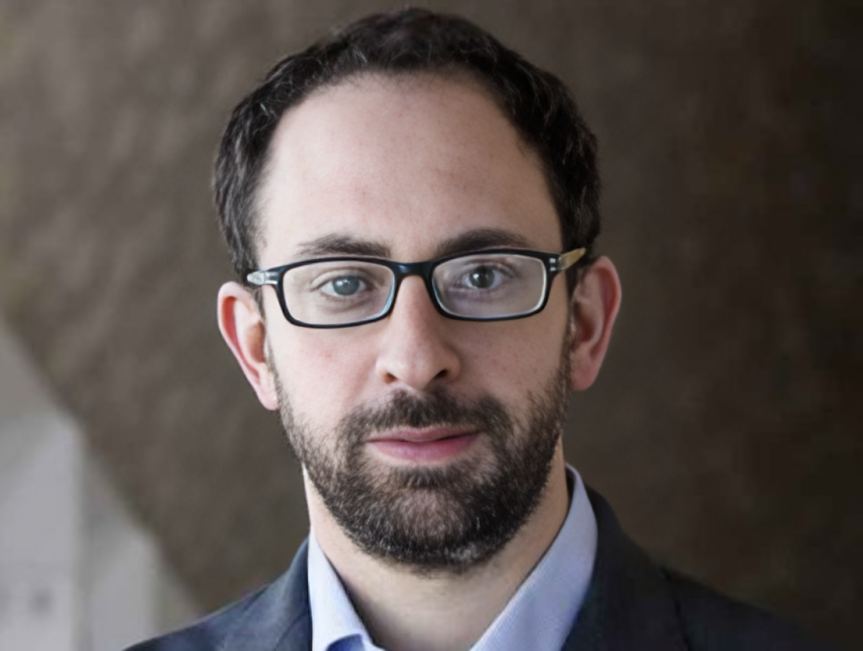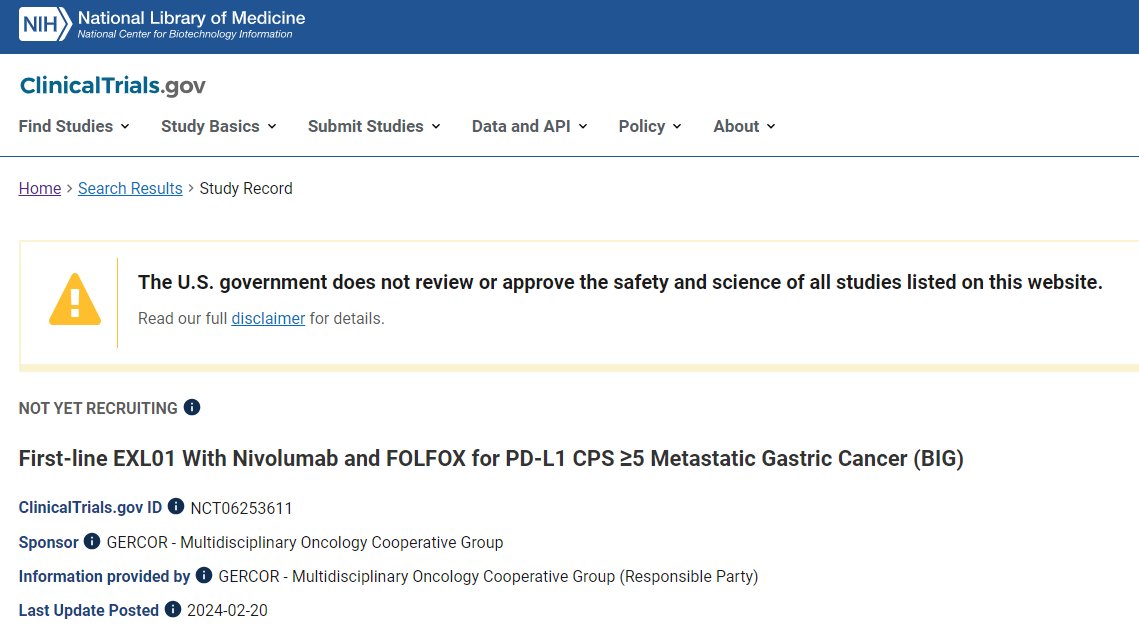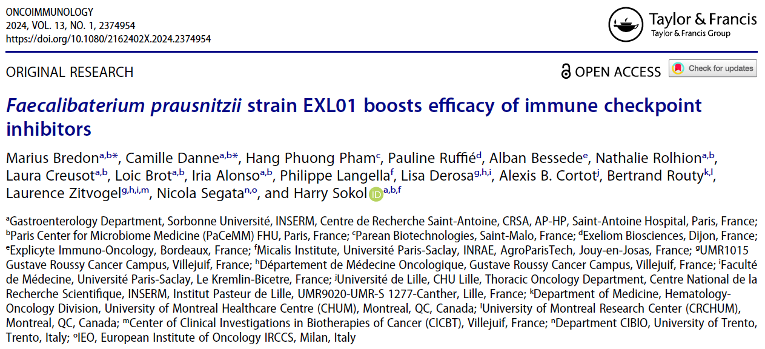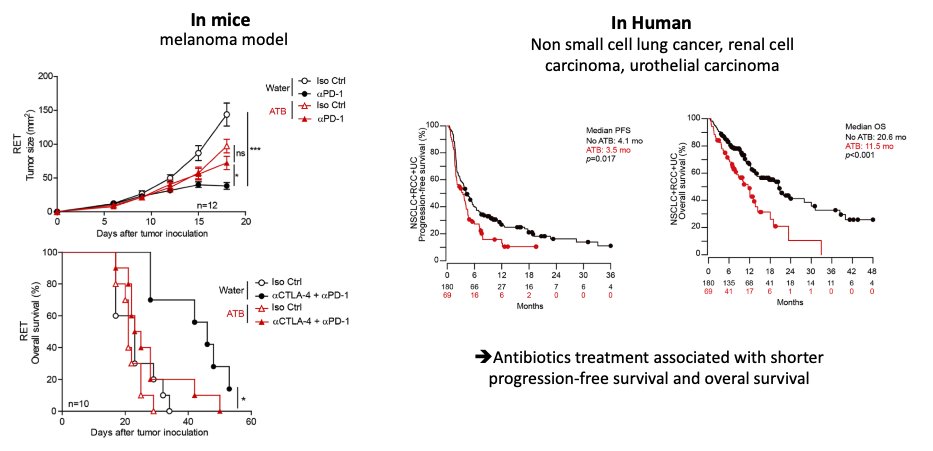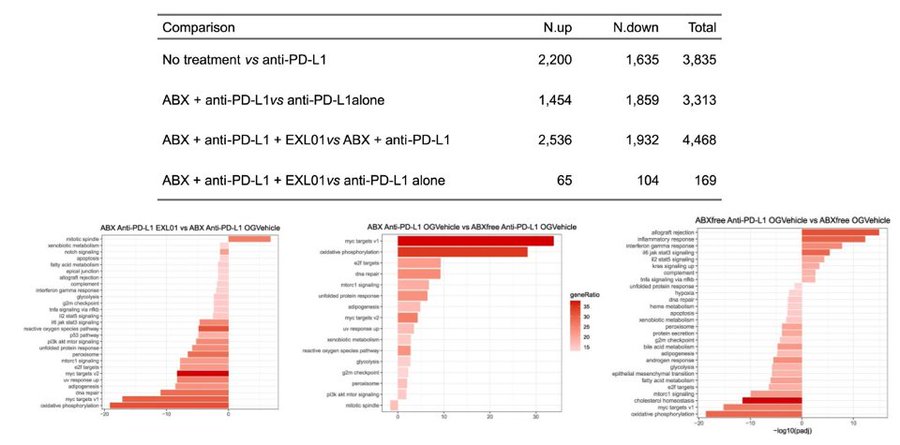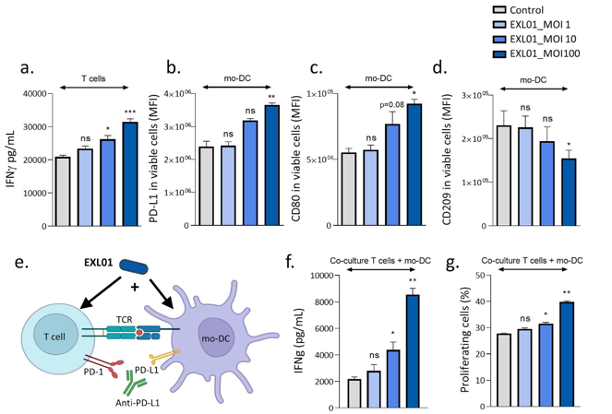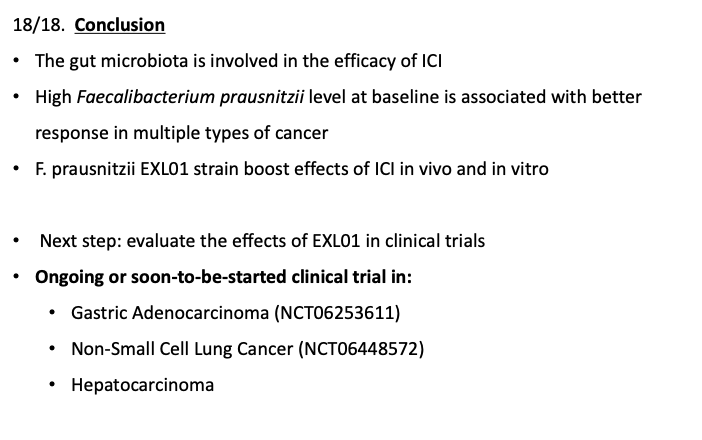Sumanta K. Pal shared a post by Harry Sokol, Professor of Gastroenterology at Greater Paris University Hospitals, on X, adding:
“Very interesting paper from Bredon Camille Danne, Nicola Segata, Harry Sokol in collaboration with Lisa Derosa, Zitvogel et al. EXL01 is a strain of F. prausnitzii. Appears to boost efficacy of CPI in preclin models. Was very interested to see studies moving forward in gastric cancer.”
Quoting Harry Sokol’s post:
“Our last paper on the role of Faecali bacterium prausnitzii to boost immune checkpoint inhibitors efficacy in cancer is out in Oncoimmunology and Cytomics Lab and it is FREE!
Bertrand Routy and colleagues showed that antibiotics compromise the efficacy of PD-1 blockade in Science Magazine. But is there a role for specific bacteria?
Baseline F. prausnitzii is a predictor of response to immune checkpoint inhibitors (ICI) in several cancer types.
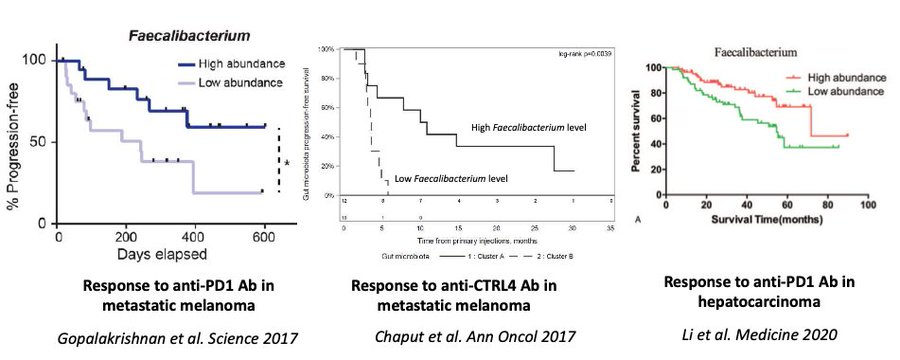
è we decided to Explore further this signal Sokol et al. PNAS 2008.
Martin et al. FEMS Microbiol Rev 2023
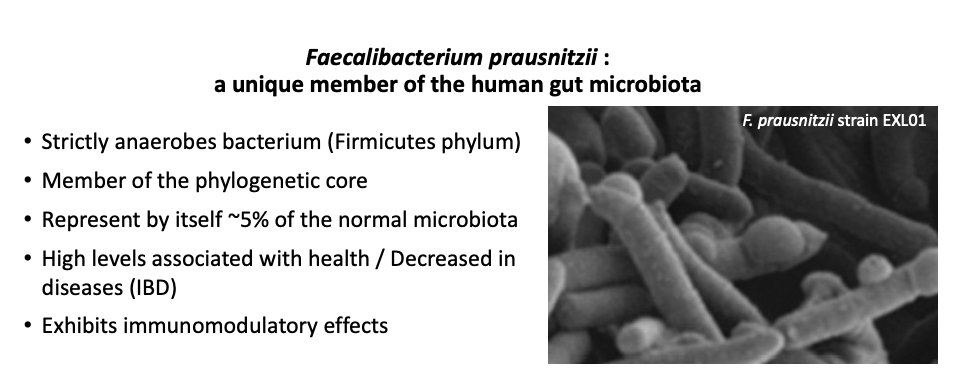
We reanalyzed the data from LisaDerosa in NATURE.med in NSCLC. A high level of F. prau was associated with a better response to ICI. This effect was lost in patients who received antibiotics, suggesting a causal effect of F. prau.
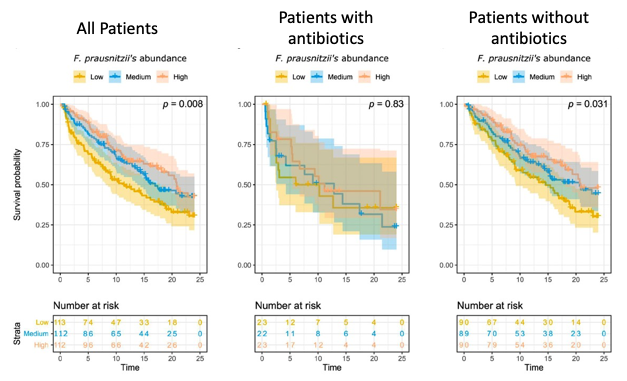
Importantly, after adjustment for confounding factors, High F. prau level was independently associated with response to ICI
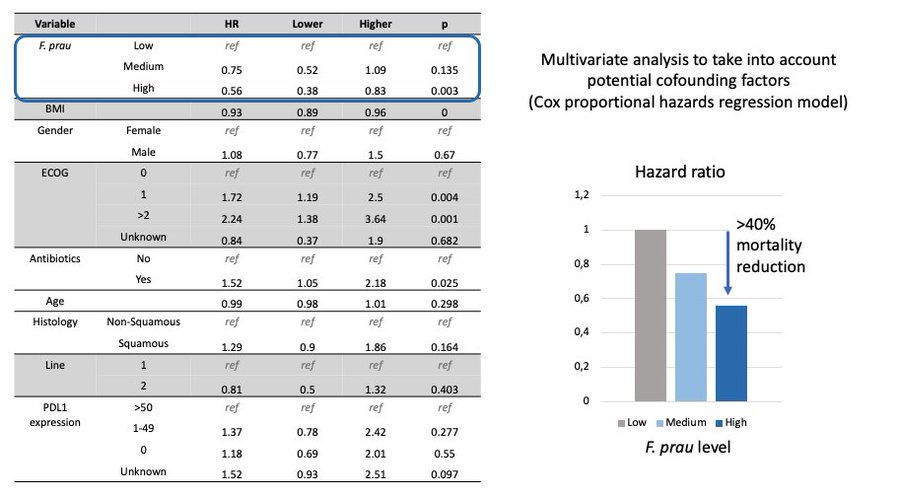
Then, we reanalyzed the data from a cross-cohort study in advanced melanoma, involving 5 different cohorts.
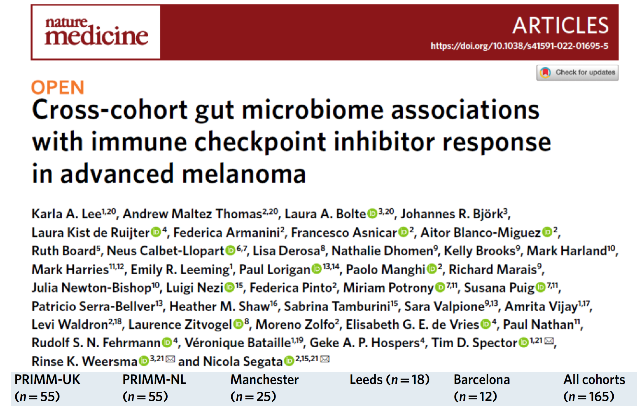
When we pooled the patients from the 5 cohorts, the F. prau signal was present but relatively weak.
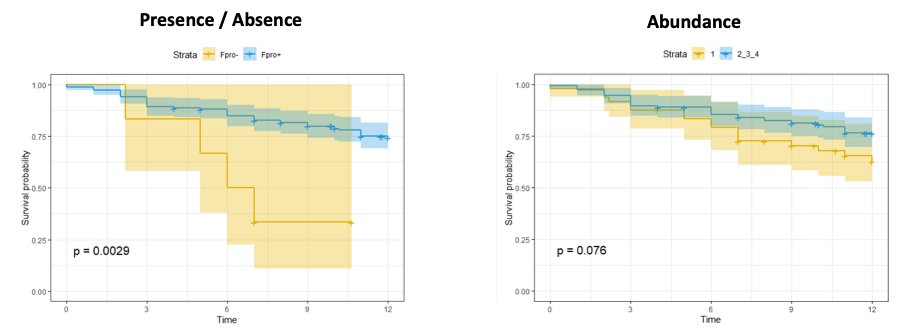
We used a Dirichlet Multinomial Mixtures approach to identify underlying microbiota structure and different community types. Using the Laplace approximation, we determined that the optimum number of clusters was two.
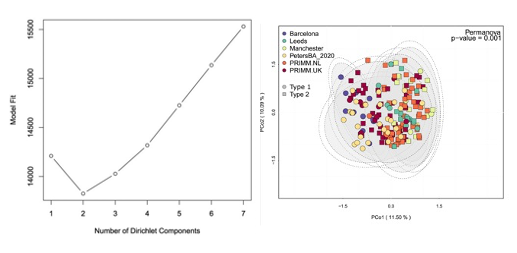
In the first community type (comprising two-thirds of the global cohort), patients with higher levels of F. prausnitzii had a better OS than those with a low F. prausnitzii level. And this was confirmed in multivariate analysis.
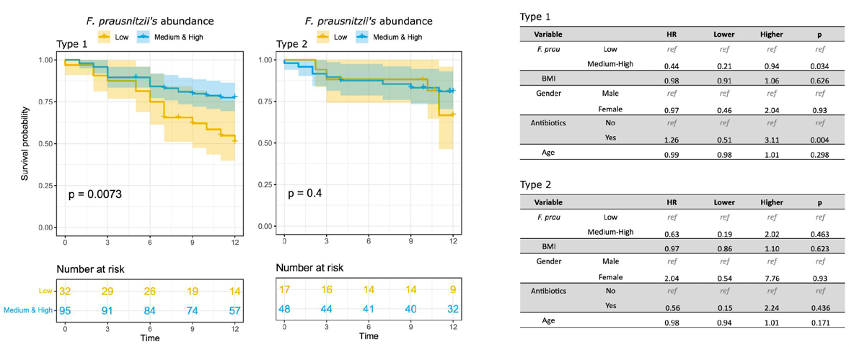
We now have strong data showing that a high F.prau level is associated with a better response to ICI in multiple cancers. But is it only a biomarker or does F. prausnitzii play a role in response to ICI?
Early data from Jennifer Wargo suggest it may play a causal role. Germ-free mice colonized with the microbiota of responders to ICI have a better response to ICI than those colonized with the microbiota of non-responder. And the effect is associated with Faecalibacterium.
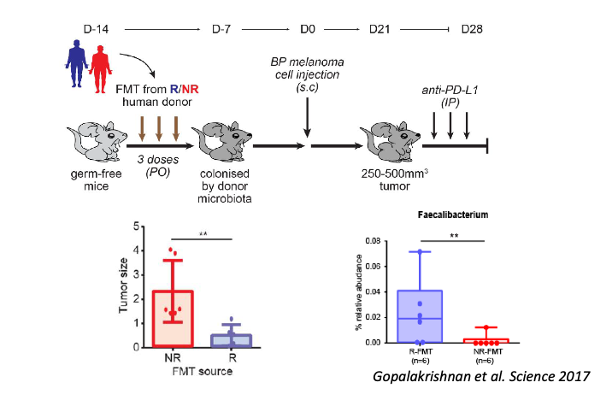
Fecal microbiota transplantation can boost response to ICI, and this effect is associated with the transfer of Faecalibacterium in multiple studies.
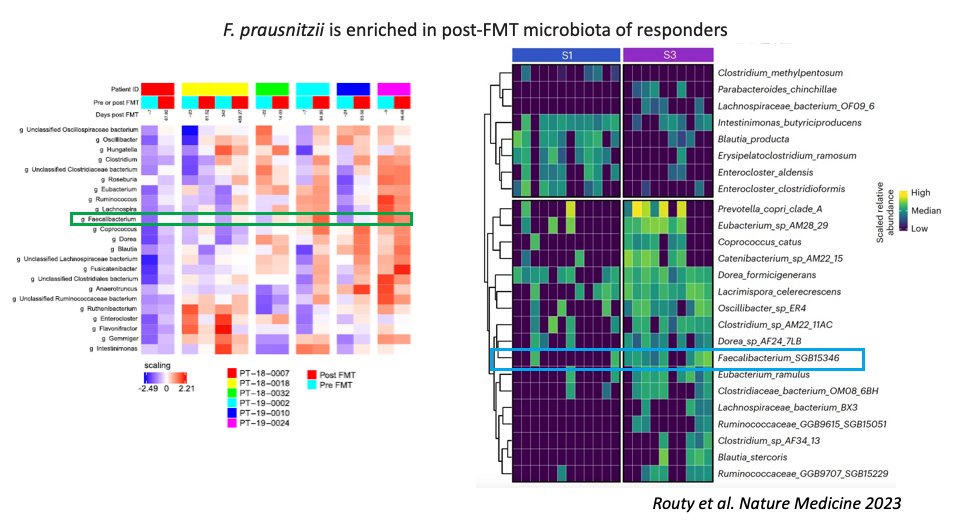
We took advantage of the F. prausnitzii EXL01 strain, currently being evaluated in Crohn’s disease (NCT05542355) and showed that its oral supplementation can restore response to ICI in mice with antibiotics-induced microbiota alterations.
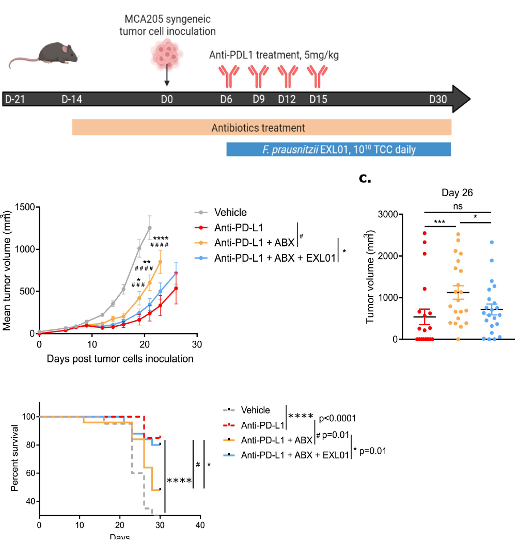
Interestingly, the effect of EXL01 was not associated with any change in composition or diversity in the fecal microbiota, suggesting that the effect is mediated by direct interaction in the small intestine and does not rely on gut colonization.
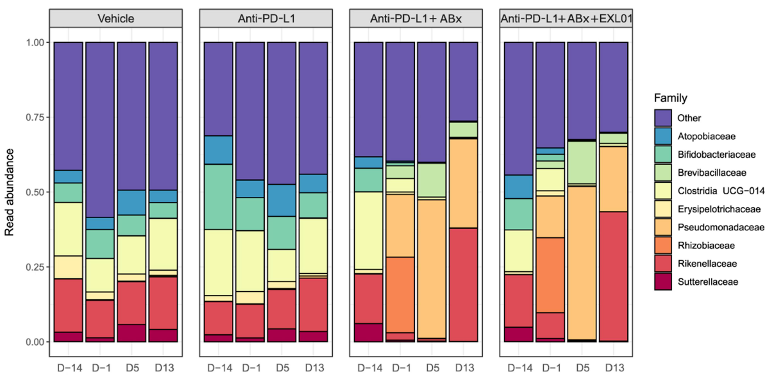
Tumor transcriptomics analysis at 13 d post-+tumor inoculation showed major effects of F. prau EXL01 administration. F. prausnitzii EXL01 strain administration restores normal response to ICI at the tumor gene expression level in the context of gut microbiota perturbation.
Finally, in vitro and in the context of ICI treatment, we showed that F. prau EXL01 activates both human dendritic cells and T cells, alone or co-cultured.
Source: Sumanta K. Pal/X and Harry Sokol/X
Sumanta (Monty) Pal, MD, is a medical oncologist and an expert in genitourinary cancers at the City of Hope Comprehensive Cancer Center in Los Angeles.
He serves as the co-director of the Kidney Cancer Program and leads the Kidney and Bladder Cancer Disease Team at City of Hope. He specialises in kidney, bladder, and prostate cancers.


